Fake news infecting health and politics
NewsGuard, a US-based service that assesses news websites, has found 36 per cent it has reviewed are ‘unreliable’.
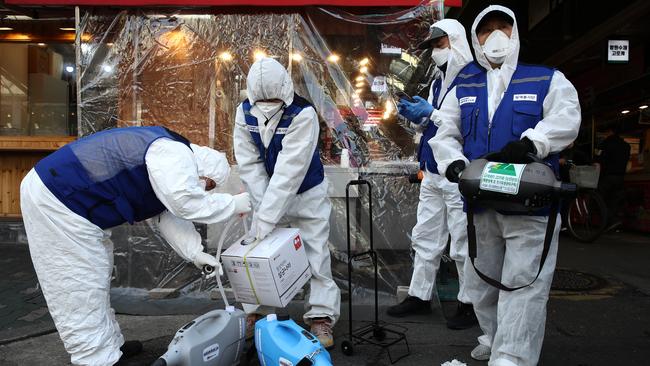
Fake news and misinformation on social media are proving a huge headache for health authorities tackling the novel coronavirus epidemic. The fake news itself has the potential to lead to deaths.
At the same time, fake news is seeing the US sail into dangerous, uncharted waters in this year’s presidential election. Just how much of a threat will it be as US citizens prepare to vote, and how far could it undermine the democratic process?
US intelligence says the Russians are not only working to help Donald Trump’s re-election but also are kicking along Democrat Bernie Sanders’s campaign, with the prime aim seemingly of promoting political chaos rather than the election of either.
We have yet to see tangible evidence of interference but NewsGuard, a US-based service that assesses news websites for gathering and presenting information responsibly, expects “a deluge” of false news from within the US and from foreign-funded sources.
MORE FROM CHRIS GRIFFITH: How did this house survive an inferno? | The new bike you can ride on water | Is Apple poised to gamble on iPhone 12 and iPhone 9? | A new angle on streaming
NewsGuard says 36 per cent of US news websites it has reviewed are “unreliable”. It has been conducting the research since its inception in September 2018. One problem is spurious reports can easily trickle over into mainstream media sites.
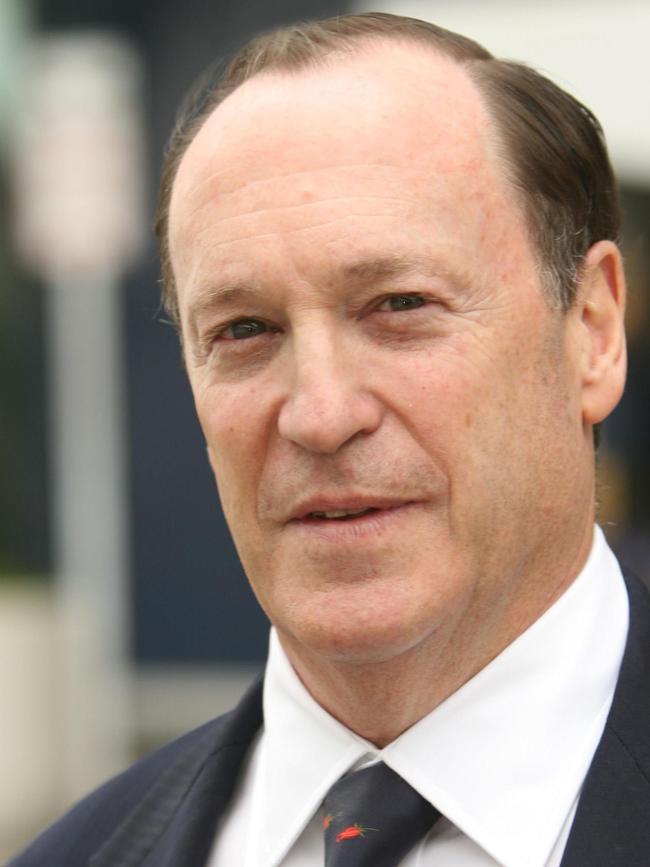
NewsGuard also has found that more than one in 10 interactions with news on Twitter and Facebook were related to stories from unreliable sites. This doesn’t augur well for the US poll.
However fake reports about COVID-19 are an even bigger concern. It’s not only the conspiracy theories about the virus being engineered for military reasons. The biggest danger is the false reports about treatments and remedies that people may try.
Social media wasn’t the potent information tool it is now when there were earlier forms of coronavirus such as severe acute respiratory syndrome in southern China in 2002 and Middle East respiratory syndrome in Saudi Arabia in 2012. This time, misinformation about COVID-19 is a huge problem in its own right.
This has prompted the World Health Organisation to establish a website, epi-win.com, as a one-stop shop for public information about the virus and as a vehicle for debunking dangerous conspiracy theories.
The WHO describes the misinformation about COVID-19 as an “infodemic”. “Infodemics can hamper an effective response and create confusion and distrust among people,” it warns as it tackles some dangerous myths.
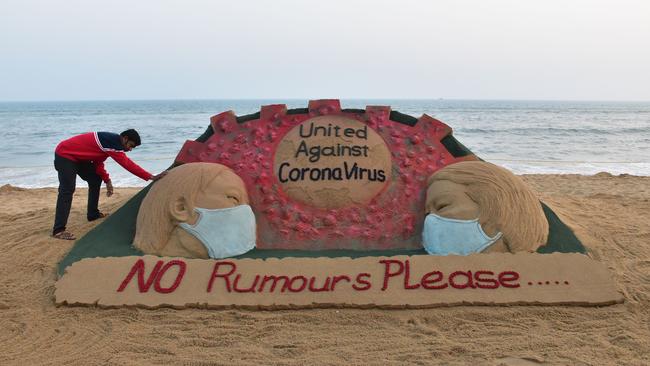
The site says vaccines against pneumonia don’t protect you against coronavirus. Neither does rinsing your nose with saline or using sesame oil as a disinfectant. Hand dryers in toilet blocks are not effective in killing the coronavirus; neither is ultraviolet light, spraying your body with alcohol or chlorine, or drinking bleach.
On the other hand, it’s safe to receive packages from China and there’s no evidence that dogs or cats can be infected by the disease.
Misinformation can lead to violence. In Ukraine, locals recently smashed the windows of buses carrying evacuees from China after a hoax email said the coronavirus was present in the country when it wasn’t, reports The Verge.
Recode has documented false claims such as scientists at the Johns Hopkins Centre for Health Security in Baltimore predicting 65 million deaths over 18 months after it ran a generic pandemic simulation last year, but this wasn’t related to this year’s coronavirus.
There was a claim China planned to kill people with the illness and that an excess of sulphur dioxide had been detected in the air from the burning of bodies killed by the disease, with the true death toll hidden by authorities.
NewsGuard has published a coronavirus misinformation tracking centre that so far has identified more than 80 websites that it says are pumping out materially false claims about the virus.
“You’ll find websites that are notorious for publishing false health content, and political sites whose embrace of conspiracy theories extends well beyond politics,” it says. “Troublingly, you’ll also see some sites that generally stick to the facts but in this case have published unvetted, poorly sourced stories that turned out to be false.”
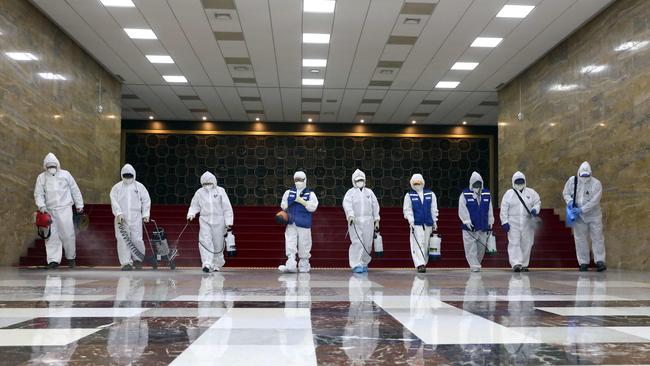
NewsGuard traced a claim about COVID-19 being engineered for military purposes to Tgcom24, a usually reputable website owned by Italy’s Mediaset SpA, which runs television and radio stations.
Despite a lack of evidence and a rebuff by fact-checking site PolitiFact, the claim was repeated in The Washington Times, NewsGuard says, with “a vague quote from a former Israeli intelligence official”. It has been amplified further on social media; PolitiFact says Facebook groups run by anti-vaxxer and US site QAnon are big promoters of the conspiracies.
Meanwhile, there are fears the US election could be seriously undermined by fake news, with all sides of politics gearing up to weaponise it.
“The liberal (Democrat-leaning) dark-money group Acronym — which also invested heavily in Shadow Inc, the tech company behind the failed Iowa Caucus reporting app — aims to reshape the digital media ecosystem by taking advantage of Americans’ trust in local journalism,” NewsGuard says.
It says the group is investing millions in a site called Courier Newsroom that is “pumping up” moderate Democrats elected to congress in 2018 in Republican-leaning districts. “Then the site spends hundreds of thousands of dollars on targeted Facebook ads to make sure constituents see these flowery, criticism-free stories about their representatives.”
NewsGuard says a conservative network founded by tea party activists has sites named TheMichiganStar.com and TennesseeStar.com. Both sides are into it.
It’s likely that millions of voters will receive follow-up messages on Facebook Messenger and other chat platforms that point to these glowing write-ups of prospective politicians that are made to look like news stories. However no-one can easily monitor the content of these messages sent individually to voters.
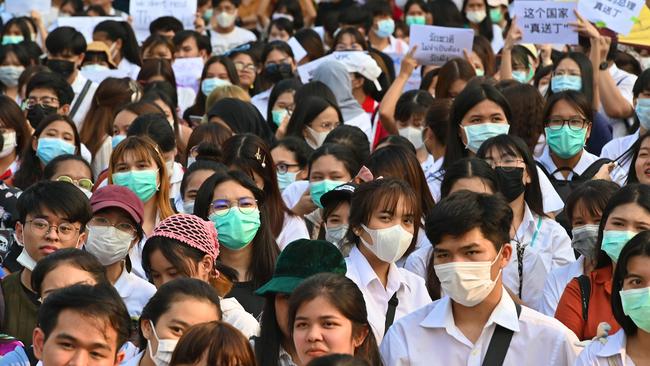
NewsGuard is a browser plug-in that displays a green or red icon, depending on whether it regards a news site as reliable when you visit it. You can click on the icon to view a “nutrition label”, a chart that shows the aspects of journalism that a site maintains or neglects. Does the site repeatedly publish false claims? Does it clearly label advertising? NewsGuard offers a detailed assessment of the site.
The service is run by Steven Brill and Gordon Crovitz. Brill is a lawyer; Crovitz is a former publisher. Brill has told The Australian NewsGuard will start categorising Australian news sites this year. “We will target the sites responsible for 90 to 95 per cent of the consumption online in Australia,” he says. He says NewsGuard has been approached by a news aggregator and an Australian broadband provider that wants to offer NewsGuard to its customers.
Apart from the US, it is categorising news sites in France, Germany, Britain and Italy. Brill describes the Australian news media as “complicated” and “highly competitive”.
He says more than 160,000 subscribers now use NewsGuard. Its rising popularity shows increased difficulty people are having assessing news reports as authentic or fabricated.
NewsGuard has closely watched English language Russian news sites RT.com and sputniknews.com and has outed them over several issues.
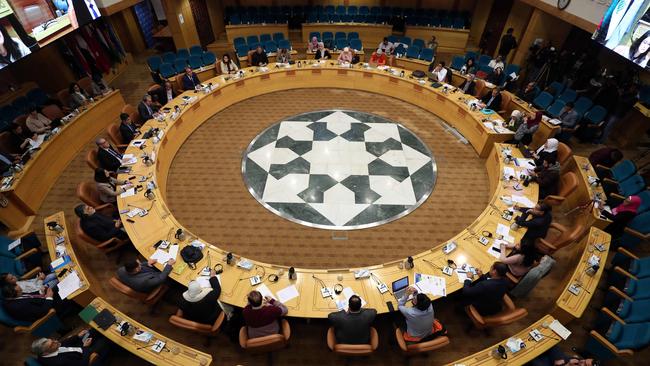
It cites RT.com’s advancement of the Kremlin’s claim that the Syrian Government, backed by Russia, did not use chemical weapons in 2018 against its citizens. It refers to articles and videos that falsely claim that 5G cellular telephone networks can cause cancer. It says multiple RT videos and articles promote the line that Russia’s military agents were not responsible for the 2018 poisoning of former Russian spy Sergei Skripal. The claims go on.
Brill says a major concern heading into the November US presidential election is the dozens, if not hundreds of small local news sites springing up promoting congressional and presidential candidates. He says NewsGuard has identified new “sleeper sites” which he expects to become propaganda sources by November.
“These are (news) sites that look like local news, but they’re not investing anything in it. They’re just copying old stuff. There’s nothing bad on the site at all,” says Brill. “But we think as it gets closer to the election, and they’ve gathered a following, they’re going to start to do this.”
Campaigns can then grab those authentic-looking fake reports and message them to millions of voters.
He says NewsGuard has “teams of reporters” combing court records to determine who owns those sites. “If we can’t find it, that is the most clear indicator that there’s something really wrong with the site.”

To join the conversation, please log in. Don't have an account? Register
Join the conversation, you are commenting as Logout